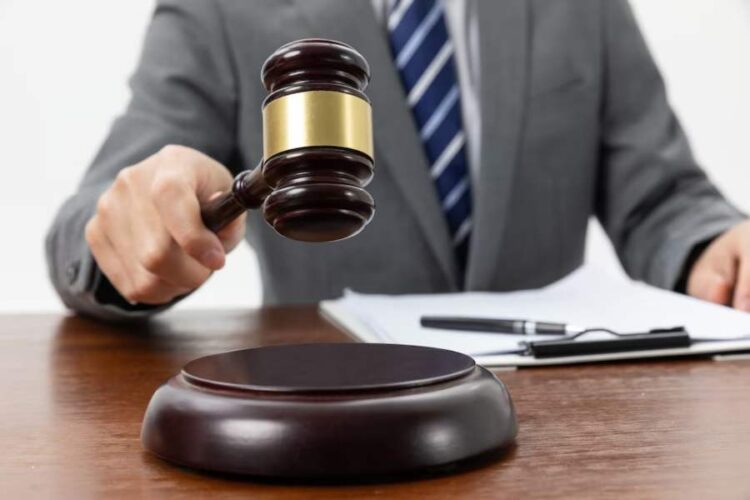How does an attorney commit fraud in court? This unsettling question is more common than most realize and raises serious concerns about the integrity of legal systems. Attorneys are sworn to uphold the law and ethically advocate for their clients. However, when legal representatives cross the line into deception, the results can undermine public trust and derail the entire judicial process.
Attorney fraud in court may include presenting falsified evidence, knowingly misleading the judge or jury, or colluding with witnesses to influence the outcome. In rare but impactful cases, it can even involve fabricating documents or tampering with official court records. While most lawyers adhere to strict ethical codes, those who do not can have devastating effects on the cases they handle and the clients they represent.
This article will examine what attorney fraud in court entails, its underlying causes, how it can be identified, and the legal consequences that follow. Whether you’re a legal professional, a curious citizen, or someone who suspects they’ve encountered fraud, understanding this issue is essential.
What Constitutes Attorney Fraud in Court?
Attorney fraud in court refers to any deliberate act of deception carried out by a lawyer during legal proceedings to mislead the court or gain an unfair advantage. Unlike honest mistakes or aggressive legal strategies, fraud involves knowingly presenting false information, omitting crucial facts, or manipulating the legal process. These actions violate both legal ethics and professional codes of conduct and can seriously undermine the fairness of a trial.
One of the most blatant forms of attorney fraud is submitting falsified evidence. This may include forged documents, doctored photos, or fabricated records designed to influence the outcome of a case. Additionally, some attorneys may knowingly permit witnesses to commit perjury or even coach them to deliver misleading testimony. These overt acts of fraud are clear violations, but more subtle tactics can be just as damaging.
For example, a lawyer might withhold exculpatory evidence, misrepresent legal precedent, or intentionally confuse timelines to serve their narrative. In fields such as healthcare litigation, a seasoned healthcare fraud attorney may be essential in identifying and challenging these deceptive practices, especially when fraudulent actions compromise patient rights or insurance claims. While these tactics can be complex to detect, they still meet the threshold for legal fraud.
Motivations can vary, ranging from pressure to win, personal gain, or appeasing demanding clients. Regardless of the motive, the consequences for attorney fraud can be severe. Penalties include professional sanctions, disbarment, monetary fines, or even criminal charges. Most importantly, such misconduct erodes public confidence in the justice system.
How Does an Attorney Commit Fraud in Court? Uncovering the Tactics
Attorney fraud in court isn’t always easy to detect—it often involves calculated, deceptive tactics meant to mislead judges, juries, or opposing parties. Below are some of the most common and serious ways an attorney may commit fraud during legal proceedings.
Falsifying Evidence
One of the most blatant forms of attorney fraud involves falsifying evidence. This can include submitting doctored photographs, altered documents, or strategically incomplete records intended to mislead the judge or jury. When an attorney manipulates evidence to distort the truth, it fundamentally compromises the fairness of the legal process.
Coaching Witnesses to Lie
Another serious violation occurs when attorneys coach witnesses to lie under oath. Encouraging or instructing a witness to give false testimony is not just unethical—it’s a direct obstruction of justice. This tactic can skew the outcome of a trial and undermine the integrity of the entire proceeding.
Concealing Evidence
Concealing evidence, especially exculpatory material that could benefit the opposing party, is a more subtle but equally damaging tactic. Attorneys are legally required to disclose relevant information. Intentionally hiding such evidence to tilt the case in one direction is a clear form of courtroom fraud.
Misleading Legal Arguments
Some attorneys misuse legal authority by misquoting case law, misinterpreting statutes, or presenting irrelevant laws as if they apply to the case at hand. These misleading arguments are designed to influence judicial rulings and can lead to incorrect legal decisions that harm one or both parties.
Forging Court Filings or Signatures
In the most extreme cases, attorneys have been found to forge client signatures or fabricate court documents. This is not only a breach of legal ethics but also a criminal offense that can lead to immediate disbarment and prosecution. These severe actions illustrate the extent to which some may go to manipulate judicial outcomes.
Top Warning Signs an Attorney May Be Committing Fraud
Recognizing the warning signs of attorney fraud in court can help preserve the integrity of legal proceedings and ensure justice is served. While some forms of fraud are subtle, others leave clear red flags behind. Below are common indicators that may suggest an attorney is engaging in unethical or fraudulent behavior during a case:
- Inconsistent Statements: When an attorney frequently contradicts previous arguments or documentation, it may indicate an attempt to reshape the narrative dishonestly. These inconsistencies could involve timelines, witness statements, or key facts.
- Withheld Information: A sudden presentation of critical evidence late in a trial, especially when it should have been disclosed earlier, raises serious concerns. Strategic withholding of information may be used to catch the opposing side off guard, a tactic that borders on intentional deception.
- Witness Red Flags: Witnesses who appear overly rehearsed, recite memorized answers verbatim, or shift their stories between hearings may be coached improperly. This could be a sign that the attorney has influenced testimony in an unethical manner.
- Altered Documents: If documents appear to have been modified, exhibit inconsistent formatting, or lack proper verification, such as timestamps or signatures, they may have been altered to mislead the court. Lack of a transparent chain of custody for evidence is another warning sign.
- Improper Communications: Unauthorized or unethical communication with judges—known as ex parte discussions—or manipulation of court staff can reflect serious breaches of conduct. Such behavior undermines fairness and transparency in judicial processes.
Being aware of these signs can help litigants, courts, and regulatory bodies identify and address fraud promptly.
What Happens When a Lawyer Is Caught Committing Fraud in Court?
When a lawyer is caught committing fraud in court, the consequences are often swift and severe. Depending on the seriousness of the offense and the jurisdiction, the penalties can range from professional to criminal. Disbarment is one of the most common outcomes, permanently revoking the attorney’s license to practice law. Other repercussions may include hefty fines, civil sanctions, and public disciplinary actions issued by state bar associations. These actions are typically documented and become part of the lawyer’s official record, damaging their professional standing permanently.
In more serious instances, attorneys may face criminal charges such as perjury, obstruction of justice, or contempt of court. Civil courts may also overturn verdicts, declare mistrials, or impose punitive sanctions. Clients affected by the misconduct may sue for legal malpractice if they have suffered harm as a result of the attorney’s fraudulent actions.
Perhaps just as impactful is the damage to the lawyer’s reputation. Once exposed, regaining trust within the legal community is nearly impossible. For many, being caught committing fraud in court marks the end of their legal career entirely.
How Does an Attorney Commit Fraud in Court and Get Away With It?
Attorney fraud in court is a serious offense, yet in some cases, it goes unnoticed or unpunished due to flaws in the legal system. Below are five key areas that explain how some attorneys manage to commit fraud and escape accountability:
- When Fraud Goes Unnoticed: In many complex or poorly monitored cases, fraudulent behavior can slip through the cracks. Overloaded court dockets, limited time for evidence review, and reliance on trust between legal professionals can allow dishonest attorneys to manipulate facts without detection.
- Systemic Weaknesses That Enable Fraud: Court systems often suffer from systemic flaws, including minimal oversight, a lack of transparency, and limited investigative resources. In some jurisdictions, disciplinary boards are underfunded or lack the power to act swiftly, giving unethical lawyers time and space to act undetected.
- Whistleblowers and Legal Remedies: Sometimes, it takes a whistleblower, such as a paralegal, opposing counsel, or even a client, to alert authorities about misconduct. While legal remedies and protections are available, not all whistleblowers feel safe coming forward, which can delay justice.
- Real-World Case Examples: There have been high-profile instances where attorneys committed fraud, such as forging documents or manipulating witnesses, and only faced consequences years later, often after significant damage had already been done.
- Preventing Attorney Misconduct: Preventing fraud requires proactive efforts, such as stricter monitoring, routine case audits, mandatory ethics training, and increased transparency in court processes. Strengthening these systems can reduce opportunities for fraud and reinforce public trust in the legal profession.
Final Thoughts
How does an attorney commit fraud in court? The answer is layered in ethical breaches, hidden motives, and the occasional failure of oversight systems. Whether it’s fabricating evidence, coercing witnesses, or distorting legal arguments, these actions go far beyond aggressive advocacy—they strike at the core of judicial fairness.
What makes this misconduct especially dangerous is its ability to go unnoticed in overburdened courtrooms or complex legal disputes. But fraud doesn’t just impact verdicts—it poisons public trust. That’s why increased scrutiny, stronger reporting channels, and proactive enforcement of legal ethics are critical. A transparent and accountable legal system doesn’t just punish fraud—it prevents it, ensuring that truth, not manipulation, drives the outcome of every case.
FAQ’s
Is it common for attorneys to commit fraud in court?
No, most attorneys uphold strong ethical standards. However, instances of fraud do happen and can significantly damage public trust and legal outcomes.
Can a client be held responsible for a lawyer’s fraud?
In rare situations, yes—especially if the client knowingly encouraged, approved, or actively participated in the attorney’s unethical or illegal behavior.
How can attorney fraud be reported?
You can report suspected attorney fraud to your state’s bar association, a court-appointed disciplinary board, or a legal oversight agency for formal investigation.
What happens if fraud is discovered after a case is closed?
If substantial fraud is uncovered post-trial, the court may reopen the case, overturn judgments, or issue sanctions to correct the injustice retroactively.
Can a disbarred attorney practice law again?
Sometimes, but only after a lengthy reinstatement process. The attorney must demonstrate genuine rehabilitation and satisfy strict reinstatement criteria.










